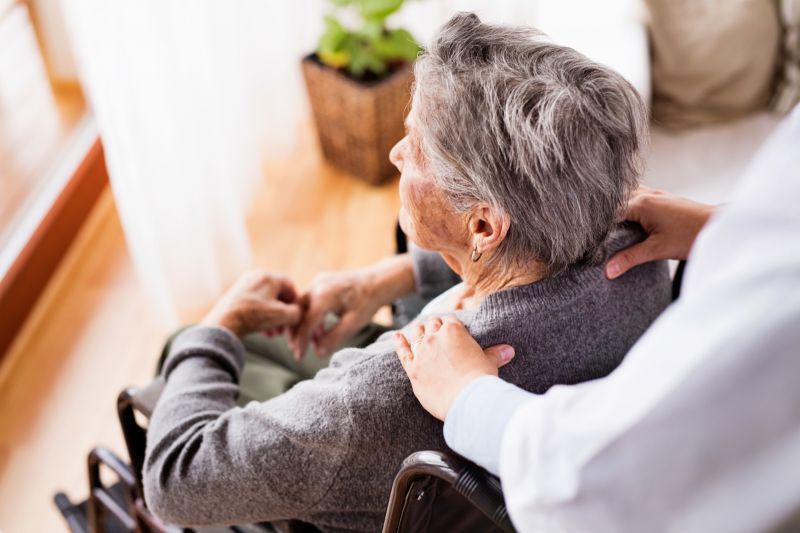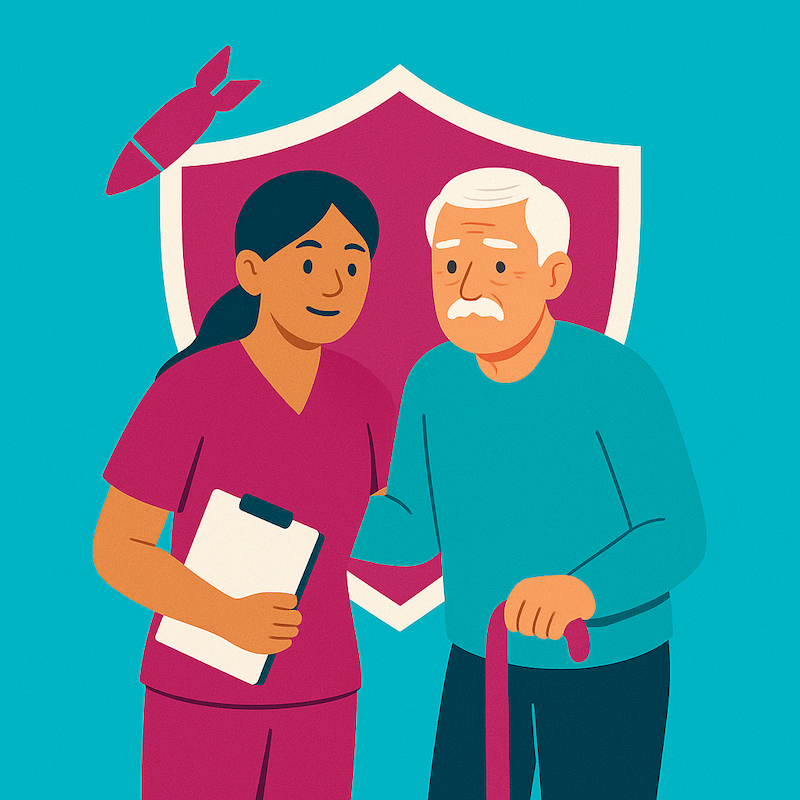Managing Care for Elderly Patients Who Refuse to Eat or Bathe: Understanding the Causes and Providing Support
iSavta | 20.03.2023

As a caregiver, it can be difficult to manage the needs of an elderly person who refuses to eat or bathe. These behaviors can be frustrating and even concerning, as they can negatively impact the individual's health and well-being. However, with patience and understanding, it is possible to address these issues and provide the necessary care.
One of the first steps in caring for an elderly person who refuses to eat is to try to understand the underlying cause of the behavior. There may be a medical condition or medication side effect that is causing a loss of appetite. Additionally, the individual may be experiencing depression, anxiety, or other emotional issues that are impacting their ability to eat. It is important to work with a healthcare provider to rule out any underlying medical issues and address any emotional or psychological concerns.
In addition to understanding the cause of the behavior, it is important to create an environment that is conducive to eating. This may include setting up a comfortable and familiar space for meals, providing a variety of foods that the individual enjoys, and encouraging socialization during meals. Additionally, incorporating activities such as cooking or gardening can help to stimulate the individual's interest in food.
Another important aspect of caring for an elderly person who refuses to eat is to monitor their nutritional status. This may include keeping track of their weight, measuring their body mass index (BMI), and monitoring their blood pressure and other vital signs. If the individual is at risk of malnutrition, a healthcare provider may recommend supplements or other interventions to ensure that they are getting the necessary nutrients.
When it comes to caring for an elderly person who refuses to bathe, the approach is similar to that of addressing the refusal to eat. It is important to understand the underlying cause of the behavior and to create an environment that is conducive to bathing. This may include making sure that the individual has access to a comfortable and familiar bathroom, providing privacy during the bathing process, and ensuring that the individual has access to any necessary assistive devices.
It can also be helpful to involve the individual in the bathing process as much as possible. This may include allowing them to choose their own soap, shampoo, and other personal care products, and encouraging them to participate in the process as much as they are able. Additionally, incorporating activities such as music or aromatherapy can help to make the experience more pleasant and enjoyable for the individual.
It's also important to note that some elderly people may have mobility issues that make it difficult for them to bathe independently. In this case, it may be necessary to provide additional assistance, such as a bath bench or grab bars, to ensure that the individual is able to safely and comfortably bathe.
Another important aspect of caring for an elderly person who refuses to bathe is to monitor their hygiene. This may include keeping track of their skin condition and monitoring for signs of infection or other health concerns. If necessary, a healthcare provider may recommend additional interventions, such as the use of moisturizers or antibiotics, to address any hygiene-related issues.
In both cases, of caring for an elderly person who refuses to eat or bathe, it is important to maintain a positive and patient attitude. It can be frustrating to deal with these behaviors, but it is important to remember that the individual may be dealing with a number of difficult issues and may not have the ability to express themselves effectively.
Being a caregiver for an elderly person is a challenging task, but with patience, understanding, and a positive attitude, it is possible to provide the necessary care and support. By understanding the underlying cause of the behavior, creating a comfortable and familiar environment, and involving the individual in the care process as much as possible, caregivers can help to address the issues of refusing to eat or bath











